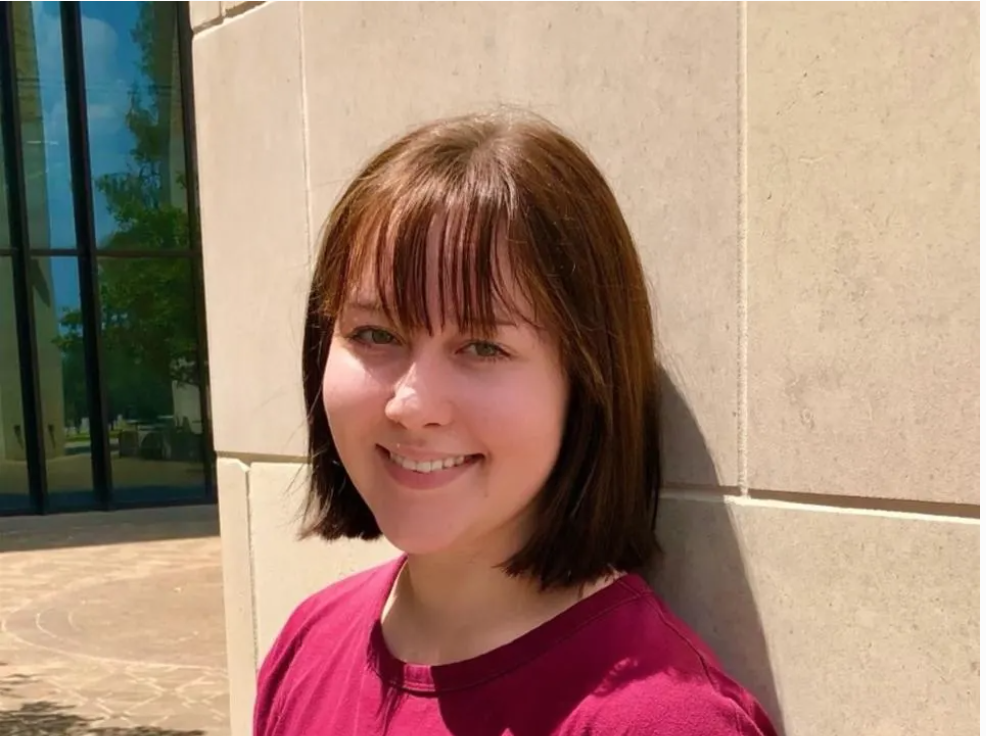
Hannah Ward, a student at Texas A&M, is teaching people how to use chatbots as an AI ‘prompter’ working as an intern at inc.digital. She says users should use accurate prompting to operate or extract the best results from AI platforms at home. (Source: inc.digital)
Mastering AI Prompt Word Skills Paramount for Chatbot Users to Do Accurate Searches
Today’s article came from forbes.com and was written by Michael Gale. Gale is a Contributor to WSJ, a bestselling author, AI influencer and podcast host who talks about what to expect in 2030. The story spotlights Hannah Ward, who writes about the importance of knowing how to talk to a chatbot. Gale writes:
“Welcome to the world of Hannah Ward a second-year undergraduate of GeoSciences at Texas A&M University in College Station. She is not Chat GPT, but part of the new generation of AI prompters who will train us how to use AI engines in our everyday work.”
Hannah Has Answers
Frankly, Gale’s article was a bit difficult to read. I actually wondered if his chatbot had written it. Turns out the piece he wrote was more about the Texas student solving a problem for the author than anything else.
While Gale was compiling data for a new book, he was having problems getting AI to help solve his problems. He had hundreds of individual interviews with some of the world’s very best thinkers
These people dedicated their lives, their ideas, and often a lot of capital to bring these amazing ideas to practice. Their language is passionate and the ideas they have can at one end be big and bold, and at the other end can get extremely technical and nuanced. Imagine trying to take these vast ideas covering so many dimensions and the hundreds of thousands of words in these conversations and try and see patterns or signals.
These interviews form the spine of the next book Gale is working on, titled “Envisage, 100 Ideas about the World of Ten Years From Now.”
When Gale found it impossible to sort and access all of his mountains of data mentioned above, he asked Hannah to find the answer. She did.
On the AI Cutting Edge
The latest craze in AI is concerned with interactive chatbots like ChatGPT which has been caught giving flawed answers or misinformation to the user. A generative AI platform called Midjourney is exciting but also dangerous in its potential to violate copyright protections by repurposing art. We have shared countless stories featuring the very top tier of AI executives, who are raising the alarm about the abilities of this powerful machine.
It is important we understand this shift in the computer paradigm. This new onset of generative AI or chat AI has been sweeping the world. If you want to stay relevant you must learn to speak and understand the platform’s language.

Hannah Ward, a student at Texas A&M, is teaching people how to use ChatGPT as an intern at inc.digital. She says users should use accurate prompting to operate or extract the best results from AI platforms at home. (Source: inc.digital)
All Hail the Prompt
Recently Gale interviewed the President of O’Reilly Media, the world’s leading publisher of technical books on areas like AI for the podcast (to be published soon on Forbes). They talked about the AI prompters getting paid six and seven-figure salaries as corporations desperately try and jump onto the immense potential of AI.
Gale originally relied on information from 120 people for his book’s content but got overwhelmed by the amount of data. He went looking for answers and found one using AI.
“In less than 30 hours of work on Chat GPT with all the 120 transcripts Hannah has designed, programmed, and adjusted the analysis straight from Chat GPT. Changing prompts and mixing the data sets with near-instant flexibility. We got 30 distinctive patterns, signals, and new ideas that combined big themes like printing organs, 5G, and climate change into a unique set of connected insights.”
Ward represents a future of working smart by using technology. The article mentions three separate pathways to understanding how to prompt AI to receive the most and best data its algorithms can provide. It’s not so hard if users learn how to use natural language when communicating with chatbots. Ironic isn’t it?
The artist M.C. Escher summed up this situation perfectly when he said, “Only those who attempt the absurd will achieve the impossible.”
read more at forbes.com







Leave A Comment